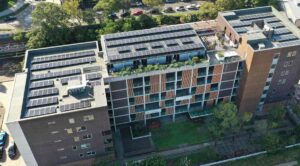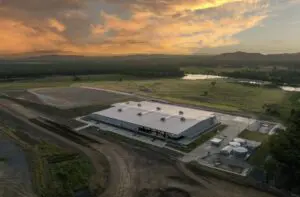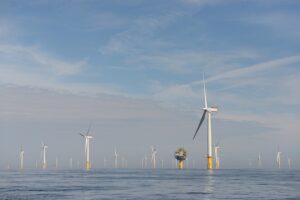The share of Australia’s electricity consumption supplied by renewable energy projects continued to grow to new highs in 2021, delivering lower energy prices for consumers while the market share of coal and gas generators slumped to historic lows.
New analysis published by the Climate Council shows that renewable energy sources supplied five times as much electricity into the grid compared to the amount supplied by gas generators.
The market share for renewables set new highs across all mainland Australian states in 2021, while the market share of gas generation was further squeezed, falling to its lowest market share in more than 15 years.
In the National Electricity Market – Australia’s largest grid – renewables supplied 31.4 per cent of electricity generation in 2021. It saw the amount of electricity supplied by renewables grow by almost 20 per cent on the previous year, while gas generators supplied just 5.7 per cent.
The market share of coal generation fell to just 62.8 per cent of the National Electricity Market, the lowest level recorded since the formation of the NEM in 1998.
In 2021, the share of renewables was highest in Tasmania (99.9 per cent) and South Australia (65.7 per cent), which have grids dominated by hydroelectricity and wind generation, respectively.
Coal-heavy Queensland (18.5 per cent) and New South Wales (24.6 per cent) were the two states that lagged behind the national average for renewables uptake.
Western Australia, which had the second-highest share of gas generation at 29.8 per cent, had a higher share of its electricity supplied by renewable energy projects (32.2 per cent).
Wind and solar supplied similar levels of electricity across the year, with the output from small and large solar projects combining to meet 13.3 per cent of electricity demand and wind generators securing a further 11.7 per cent market share.
Climate Council senior researcher Tim Baxter said the analysis showed both the benefits that were being achieved in terms of emissions reduction and decreases in the cost of electricity for consumers, by the growth of renewables.
“The increase in solar, wind and batteries in our electricity system is making power bills cheaper for Australian households and businesses. Electricity is now the cheapest it has been in almost a decade and we have solar and wind to thank for that,” Baxter said.
“Let’s be clear, this record has nothing to do with the federal government, which has been missing in action and leaving all of the heavy-lifting to the states and territories.”
“When you look at the data, and what renewables are doing for Australians’ hip-pockets, the push for gas from the Morrison Government seems increasingly irresponsible and economically reckless.”
The analysis has been released just as the Morrison Government granted approvals for the construction of the 660MW Kurri Kurri gas generator – which will be built by Snowy Hydro using taxpayer funding.
The Morrison Government has committed $600 million in public funding to construct the project, labelled costly and unnecessary by critics.
Member of the Climate Council and former BP Australasia president, Greg Bourne said the observed energy market trends – a shift towards renewable energy and away from gas – pointed to the growing risk that gas generators were at risk of becoming stranded assets.
“Every taxpayer dollar spent on new gas-fired power infrastructure is at risk of being wasted on unnecessary stranded assets,” Bourne said.
“Gas simply cannot compete with renewable energy, which is bringing down power prices for consumers and creating a cleaner, healthier energy system.”
“Gas is expensive, polluting, and diminishing in importance and relevance as the rest of the world moves towards net zero, and our own states and territories rapidly roll out large-scale renewable energy and storage,” Bourne added.
Please sign up to our free daily newsletter, just click here.










